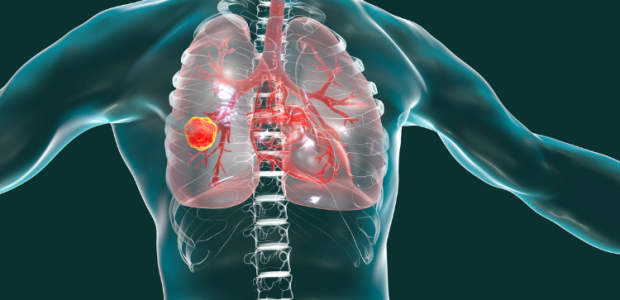
The battle against lung cancer has been intense and ongoing. With advancements in medical science, the therapeutics sector has seen rapid strides. In light of this, the global lung cancer therapeutics market size reached an impressive figure of USD 28.6 billion in 2022. Furthermore, projections suggest a robust growth at a CAGR of 11.60% from 2023 to 2031, aiming to reach a staggering value of USD 76.9 billion by 2031.
Overview
The lung cancer therapeutics market is a dynamic area of medicine that focuses on innovative treatments and interventions to manage and, ideally, cure lung cancer. This market comprises various products, therapies, drugs, and interventions tailored for different stages and types of lung cancer. As research progresses, newer products with increased efficacy and lesser side-effects continue to be introduced, propelling the market forward.
Components of the Lung Cancer Therapeutics Market
This market comprises a wide range of therapeutic solutions:
- Surgery: This involves the removal of tumors or affected parts of the lung.
Radiation Therapy: High doses of radiation are used to kill or shrink cancer cells. - Chemotherapy: Drugs are used to kill or limit the growth of cancer cells.
Targeted Therapy: Custom drugs designed to target specific vulnerabilities in cancer cells. - Immunotherapy: Enhancing the body’s natural defenses to fight cancer.

Lung Cancer Therapeutics Market Segmentation
Lung Cancer Therapeutics Market Segmentation
Type of Lung Cancer:
- Non-small cell lung cancer (NSCLC)
- Small cell lung cancer (SCLC)
Lung Cancer Therapy Type:
- Surgery
- Radiation Therapy
- Chemotherapy
- Targeted Therapy
- Immunotherapy
Distribution Channel:
- Hospitals
- Clinics
- Online Pharmacies
Lung Cancer Therapeutics Benefits and Applications
The benefits of lung cancer therapeutics are numerous:
- Increased Lifespan: Many treatments significantly extend patient life expectancy.
Quality of Life: Therapies aim to reduce symptoms and side effects, enhancing overall patient wellness. - Early Detection: Advanced therapeutic tools and drugs aid in detecting lung cancer at early stages, improving treatment outcomes.
- Personalized Treatment: The advent of personalized medicine means treatments are tailored to individual genetic profiles, increasing efficacy.
- Factors Driving the Market
Several elements have been propelling the growth of this market: - Increased R&D Investments: Pharmaceutical companies are investing heavily in research and development.
Rising Lung Cancer Incidence: As the number of cases rises, so does the demand for treatments. - Awareness Campaigns: Global efforts to raise awareness have resulted in more individuals seeking early diagnosis and treatment.
Lung cancer Therapeutics’ Challenges and Barriers
Despite its growth, the market faces several challenges:
- High Costs: Novel therapies can be prohibitively expensive.
- Accessibility: Not all treatments are available globally or in all regions.
- Adverse Side Effects: Some treatments might bring about severe side effects.
- Resistance to Treatment: Over time, certain cancer cells can become resistant to therapies.
Market Opportunities and Future Outlook
The future of the lung cancer therapeutics market holds immense promise:
- Emergence of Biotherapeutics: Natural and less toxic treatment options are on the rise.
- AI in Drug Discovery: Artificial Intelligence is aiding faster drug discovery processes.
- Global Collaborations: Increased collaborations among countries and institutions can fast-track innovations.
Competitive Analysis
The market is marked by fierce competition with several major players like Pfizer, Roche, and Merck, among others. Companies are focusing on R&D to produce next-gen therapies. Collaborations, mergers, and acquisitions are common strategies to retain and expand market share.\
Lung Cancer Therapeutics Market Trends
- Personalized Therapies: Tailored treatments based on individual patient profiles are becoming more prevalent.
- Home-based Care: With the advancement in technology, some therapies can now be administered at home, reducing hospital visits.
- Integrative Therapies: Combining multiple treatment modalities to increase effectiveness is a rising trend.
In conclusion,
The lung cancer therapeutics market is on an upward trajectory, backed by relentless research and development. As we understand lung cancer better and technology advances, the future looks promising for those battling this ailment. As consumers and stakeholders, staying informed about this dynamic market is essential.
